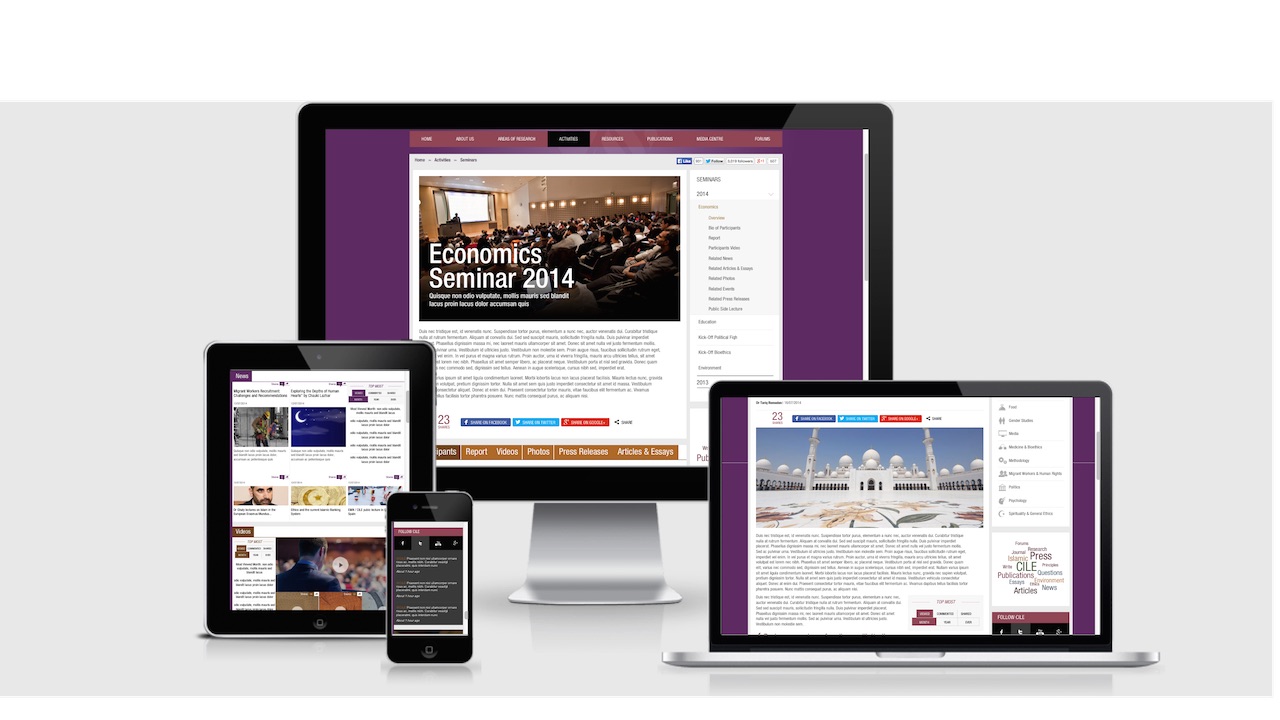It has often been said that religious minds or people of firm convictions are the most likely to surrender to the temptation to appropriate the universal and to assert that they have a monopoly on it. That is quite true: if we believe in one God or in the one Path that leads to truth and fulfilment, there is a real temptation to speak for or in the place of the God in whom we believe or in the name of the spiritual Truth we support; the history of religions and civilizations is adequate proof of that. And yet we have often seen people taking a very different stance. There are religious and spiritual thinkers who are so acutely aware of the danger of becoming inquisitorial and totalitarian that they have always striven to emphasize the values of diversity and of listening to others, who have firmly rejected the need for coercion and respected the multiplicity of religions, Paths and points of view.. At the opposite extreme, we have seen rationalist, sceptical, agnostic or atheist thinkers claiming to be open-minded, and then coming around to the view that the very idea of their own open-mindedness gives their status and their values a natural superiority. The cult of Reason that emerged from the French Revolution had its moments of terror too. Because they confuse self-doubt with open-mindedness towards others, some rationalists and sceptics succumbed to the same temptations of exclusivism, not in terms of the universal in itself, but in terms of the one path that leads to it. That is the paradox of those who believe that there is only one way to have an open mind.
The common feature of the various attitudes that gradually lead to monopolization of the path to the universal has less to do with the object of the quest than with the disposition of the intellect that goes on it. Points of view are determined by states of mind: all these attitudes have succumbed to the dogmatic temptation that colonizes the intellect. In that sense, the dogmatic mind is not necessarily a religious or a believer’s mind, and it is quite capable of influencing very rational intellects. The characteristic feature of the dogmatic mind is its tendency to see things from one exclusive angle, and to think in terms of absolutes: the dogmatic mind thinks that it is God and passes judgement from on high and in the name of eternity, just as it thinks that it is the absolute viewpoint (Bergson sees this as a contradiction in terms) and the only centre of what is seen and what there is to see. Exclusivity is its territory and its property, and the universal is its ideal: its truth alone is true, its reasons alone or rational, and only its doubts are certified.
The dogmatic mind displays, moreover, one further characteristic. It would be a mistake to think that it accepts the existence of only one point of view: the dogmatic mind is a binary mind. Whilst it states that its truth is the only truth, that its Way is exclusive and that its universal is the only universal, that is because it stipulates –at the same time—that anything that does not partake of that truth, that path and that universal is, at best, absolutely ‘other’ and, at worst, culpably mistaken. This simplistic state of mind can sometimes be astonishingly sophisticated; it is, to say the least, disturbing, to observe, at the heart of postmodernity and globalization, the rise of mass movements that are, in varying degrees, intellectualized or emotive, that shape dogmatic and binary minds that are increasingly incapable of accepting the complex multiplicity of points of view, paths and ways. It is as though mass communications, with their colossal powers, their capacity to bring psychological pressures to bear and the uncontrolled complexity of their power to influence us, had shaped a new ordinary human being, in both the East and the West, the North and the South. This increasingly universal human being is, like his fellows, in danger of becoming simplified: we are seeing the global birth of a binary mind that is increasingly devoid of complex ideas and nuances, easily convinced of the truths it is told again and again, colonized by perceptions and impressions that are as intellectually vague as the way it judges others is cut and dried and final..










I think it’s a brilliant comment you make when you say that dogmatic mind see only two paths its own and the correct one and the other the culpably mistaken.
This global birth of this binary mind that you mention simply can’t cope with the complex ideas & nuances of the other metanarratives and so it considers that this global village of ours is only big enough for 2 the right one and the wrong one !
Salaam, and thanks for your article Prof. Ramadan, as always it’s a pleasure to read your work.
I accept the position that dogmatism is principally mistaken. But this article appears only half complete => are we to take from this article that there is no absolute truth? Or are we to take from it that there is an absolute truth but there are multiple ways of understanding or knowing it?
If there is an absolute truth which most of humanity believe that there is (since most of humanity believe in God – Who is the Absolute Truth, the Ultimate Reality) then how do we fight against dogmatism while not entering the perhaps equally dangerous territory of relativism (that there is no truth as such, but ‘truth’ is whatever the individual makes it to be, hence that truth is a personal matter and not objective)? How do we differentiate between truth and falsehood present in the many different theories among different thinkers and keep the middle path between the two extremes of dogmatism and relativism?
Salaamoalekom
It is somewhat a perplexing subject. I realized, reading your article, how cliché my mind works. Being a Muslim, makes me by default think that the truth is in my religion. And though I am not prejudiced towards others, deep down I probably think…I know better than that.
However I thought that every person of whatever faith must think the same way. Engaging others without holding a higher moral ground is key but difficult.
However I am confused by this sentence:
that their very number signals their relativity.
Being different means we are bound to believe in different things.
But are you maintaining that Truth is relative and there isn’t one universal truth?
I too believe the truth is in our belief (islam), but in this is a great deal of relativism as well since no two muslims seem to understand islam the same. A sence of humbility in whatever belief seems in place, no one holds all truth, Which doesn’t mean we can confess our one personal truth and discuss it with others – muslims and non-muslims.
رجاءا نريد ترجمة هذا المقال بالعربية ..!
THE DOGMATIC MIND
رجاءا